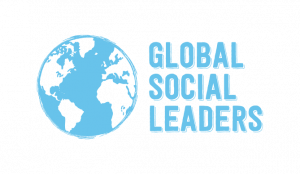AIMS & OUTCOMES
The GSL Catalyst and Accelerator courses provide students with the opportunity to make friends and learn from other young people from a diverse range of backgrounds. Students will have the time to connect, share and learn about the world from their perspectives, discover what they are passionate about and explore how they can collaborate and support each other to make the world a brighter more sustainable place for all.
We are in unprecedented times. Now more than ever we need to learn to navigate ourselves to changing contexts and adapt in ways that ensure wellbeing. Courses include sessions on wellbeing and resilience where they will learn and develop a practical toolkit for supporting their wellbeing now, and in the future. We believe it is important to give time and space to develop good mental health and wellbeing. GSL will provide students the space they need to reflect and grow in the ways they want to.
The future employment landscape is always changing, and there are lots of choices facing students around education, jobs and their future! We want to support them to build these skills on our courses by focusing on The Four C’s.
“If today’s students want to compete in this global society, they must be proficient communicators, creators, critical thinkers, and collaborators (the “Four Cs”). Students need to master additional subject areas, including foreign languages, the arts, geography, science, and social studies. Educators must complement all of those subjects with the “Four Cs” to prepare young people for the global workforce.”
[The above text is an extract from research carried out by the National Education Association.]
The OECD highlight the need to acquire three transformative competencies to help shape the future we want: creating new value, reconciling tensions and dilemmas, and taking responsibility. When young people “create new value, they ask questions, collaborate with others and try to think “outside the box” in order to find innovative solutions. This blends a sense of purpose with critical thinking and creativity.”
Young people “need to be able to balance contradictory or seemingly incompatible logics and demands, and become comfortable with complexity and ambiguity. This requires empathy and respect.”
Young people “who have the capacity to take responsibility for their actions have a strong moral compass that allows for considered reflection, working with others and respecting the planet.”
[OECD Learning Compass 2030]
We have shaped our programme based on this Learning Compass which has focused on what knowledge, skills, attitudes and values students’ need today to thrive in and shape their world.
The GSL Catalyst and Accelerator courses are shaped to focus on building knowledge, skills attitudes and values through independent learning as well as live sessions connecting young people. We believe in building the right attitude and values in young people as the foundation for GSL courses.
Reflection is a key component to any GSL course, as part of the learning process; encouraging young people to reflect on their experience throughout the programme, their own individual learning and building their insight. “We do not learn from experience. We learn from reflecting on experience.” [Dewey (1933:78)]
The Learning Compass highlights the need for “students to learn to navigate by themselves through unfamiliar contexts” [OECD Learning Compass 2030].
Through GSL, students will learn to be the Captain of their own ship!
GSL challenges students to THINK GLOBAL and ACT LOCAL, examining the issues behind the Global Goals and understanding the part they can play by joining the biggest attempt in the history of the human race to make the world a better place.
We also feel that connecting young people from different countries and backgrounds will help shape meaningful discussions on issues as well as creating collaborative solutions as Global Citizens.
Many young people are already running their own projects in their school or community, and the aim of the programme is to build and develop knowledge around the SDGs. Students are supported to take on a 30-day or 60-day independent challenge, where they will take action to address a local or global issue they feel passionate about. Check out our Challengers and get inspired by clicking here!






